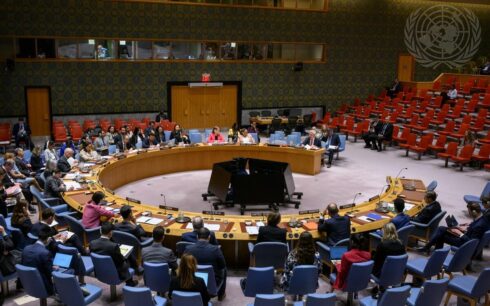KABUL — Despite an official invitation from Pakistan, Amir Khan Muttaqi, the Taliban’s acting foreign minister, has been denied permission to travel to Islamabad by the Taliban’s leader, Hibatullah Akhundzada, according to sources familiar with internal Taliban deliberations.
Two sources within the Taliban told Amu TV that while Pakistan formally invited Muttaqi during a visit to Kabul two weeks ago, Akhundzada has refused to authorize the trip, effectively halting diplomatic engagement at a critical moment in regional relations.
Taliban officials at the foreign ministry confirmed that no preparations are currently underway for the visit, despite the diplomatic overture from Islamabad.
Instead, on Tuesday, Muttaqi held a phone call with Ishaq Dar, Pakistan’s deputy prime minister and foreign minister, during which he extended a counter-invitation for Dar to visit Kabul again — a move widely interpreted as a way to delay or deflect the pending trip.
According to Taliban officials, the two sides discussed bilateral relations, transit challenges, regional security dynamics — including growing India-Pakistan tensions — and agreed to work toward unblocking Afghan trade goods stuck at ports in Karachi and the Wagah border.
“The two countries agreed to increase exchanges of high-level delegations and remove obstacles in transit routes,” said Zia Ahmad Takal, deputy spokesman for the Taliban foreign ministry.
The Pakistani foreign ministry, in its own statement, confirmed the call and said Dar briefed Muttaqi on India’s “unilateral and provocative actions” against Pakistan. The statement did not mention the stalled invitation.
Frictions over TTP and regional influence
Pakistan has long accused the Taliban of harboring or turning a blind eye to the Tehrik-i-Taliban Pakistan (TTP) — a militant group responsible for dozens of attacks inside Pakistan. The Taliban have rejected the accusations, but the issue has become a persistent source of friction.
“The Taliban’s relationship with Pakistan, both militarily and politically, is deeper than ever,” said Mohammad Radmanesh, a military analyst. “But the unresolved issue of the TTP has created a strategic dilemma that Islamabad is trying to manage — especially as India looms large in the background.”
The stalled diplomatic trip comes at a sensitive time, as Islamabad faces both internal security concerns and increased scrutiny over its ties with the Taliban following a deadly attack in Indian-administered Kashmir in April that killed 26 tourists. India has accused Pakistan of supporting terrorism, including Taliban-linked groups — a claim Islamabad has rejected.
India’s foreign minister recently stated that Pakistan has “sponsored the industry of terrorism” and “nurtured the Taliban,” arguing that Pakistan is now facing the consequences of its own policies.
As regional tensions escalate, the Taliban’s reluctance to allow their top diplomat to travel has raised further questions about Akhundzada’s centralized control over foreign policy and the group’s willingness — or ability — to engage in formal diplomacy.




